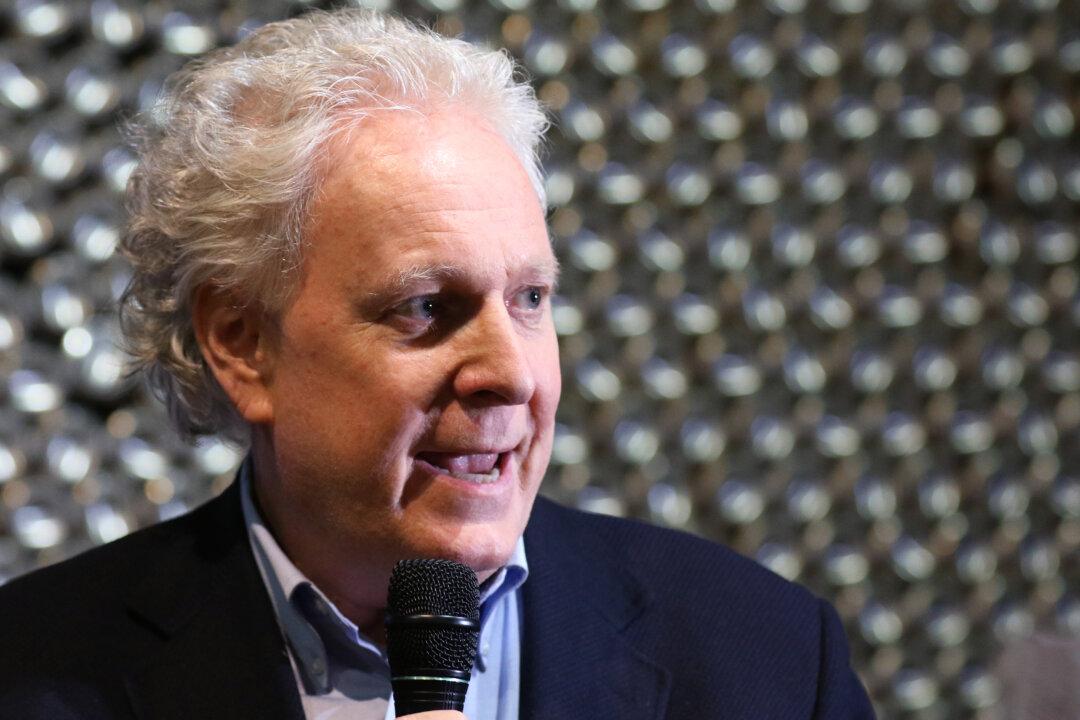Conservative Party leadership candidate Jean Charest says he is “very proud” of his work advising Chinese telecom giant Huawei on the Meng Wanzhou extradition case.
“What we did in Huawei, I’m very proud with what we did in helping to sort out the situation of Ms. Meng Wanzhou,” the former Quebec premier told reporters at an event in Calgary on March 10 to launch his bid for Tory leadership.
Meng was arrested in late 2018 in Vancouver at the request of the United States on fraud charges related to the violation of U.S. sanctions on Iran. Following her arrest, Canadian citizens Michael Kovrig and Michael Spavor were arbitrarily detained in Chinese prisons for over 1,000 days in what is widely viewed as retaliation by Beijing.
“I worked with the family of Michael Kovrig so that we could free the two Michaels. We worked with them very very closely throughout the whole process,” Charest said.Both men were released by the communist regime on Sept. 24, 2021, after Meng reached a deferred prosecution agreement with the U.S. Justice Department earlier that day prompting a Canadian court to lift her bail conditions that allowed her to fly home to China that afternoon.
Charest was part of a team at the law firm of McCarthy Tétrault that also includes former privy council clerk Wayne Wouters. In January 2020, the Globe and Mail reported the firm was hired to offer strategic advice on Meng’s case.
The Globe also reported that Charest’s service to Huawei as a partner at the law firm went beyond Meng’s case as he counselled the Chinese telecom on its bid to be involved in Canada’s 5G network.
Huawei was founded by Meng’s father Ren Zhengfei, a former officer of the People’s Liberation Army who has close ties to Beijing. Warnings about Huawei’s threats to national security have long been voiced by the international intelligence community. The U.S. government has also urged its allies to exclude the company from the West’s next-generation communications network saying Beijing could use it for spying purposes.
The Washington Post reported last December that a review of over 100 Huawei marketing presentations downloaded from the telecom’s public-facing website before they were removed suggested that “the company has had a broader role in tracking China’s populace than it has acknowledged.”
Presentation topics included how to “identify individuals by voice, monitor political individuals of interest, manage ideological reeducation and labor schedules for prisoners, and help retailers track shoppers using facial recognition.”
According to the Post, of more than 3,000 PowerPoint slides downloaded from the Huawei website, five slides dating between 2016 to 2018 that outlined “a surveillance solution” between Huawei and another company stood out.
The companies involved include Chinese artificial intelligence company iFlytek and facial recognition company DeepGlint that were both sanctioned by the U.S. Commerce Department in October 2019 and last July respectively for human rights violations and abuses against Uyghurs, Kazakhs, and other members of Muslim minority groups in the Xinijiang region.
The Conservative Party pushed the Liberal government to label the persecution of the Uyghurs by the Chinese regime as genocide last February.
Charest was among several Canadian politicians whose names were in a dossier of key Canadian influencers Beijing provided to Huawei to advance its interests in Canada, according to the Globe, which obtained a copy of the dossier in September 2020.
Charest was the leader of the federal Progressive Conservative Party in the 1990s and deputy prime minister under former prime minister Kim Campbell. He was the premier of Quebec from 2003 to 2012. In 2014, he criticized the Harper government for not pursuing trade ties more aggressively with China.
In November 2019, Charest told a business panel at the Empire Club in Toronto that Canada should seek closer ties with China.
Omid Ghoreishi, Noé Chartier, Yao Liang, and Tanya Du contributed to this report.





